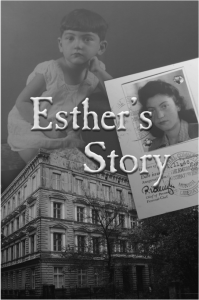The number of living Holocaust survivors is shrinking. The survivor who was liberated from Auschwitz at the age of twenty will have turned ninety this year. In 2012, the Foundation for the Benefit of Holocaust Victims in Israel found that one Holocaust survivor died every hour in Israel. With increasing urgency, leaders in technology, government, and the arts have sought ways to empower survivors to speak and document their histories for the next generation. Over the past two decades, Steven Spielberg’s
the Shoah Foundation has recorded over 52,000 survivor interviews of multiple genocides. Last year, President Obama appointed a
Special Envoy for US Holocaust Survivor Services tasked with providing a range of support services partly intended to empower survivors to share their stories. Today, researchers out of the University of Southern California are perfecting technology capable of preserving 3-dimensional
holograms of survivors. Each of these strategies aims to ensure that the poignant, historically important stories of Holocaust survivors remain accessible in the coming years.
In conjunction with the Triangle-local Holocaust Speaker’s Bureau, undergraduates Matthew Kirshner and Scott Powell are attempting to contribute to this goal. The Holocaust Speaker’s Bureau provides classroom assistance and survivor presentations to classrooms throughout North Carolina. To both preserve speaker stories as well as complement these classroom presentations, Matt and Scott have begun development of a mobile application that will serve as an accessible digital repository for the survivors’ stories. In addition, this app will serve as a teaching tool and presentational aid to be used in conjunction with survivor presentations.
With the generous sponsorship of the Center for Jewish Studies and Humanities Writ Large, the two are currently hard-at-work developing the template and curating content for the app, which includes survivor profiles, interactive maps and timelines, academic sources, and material on other recent genocides. Keep checking back for sneak peeks into the app’s progress!




